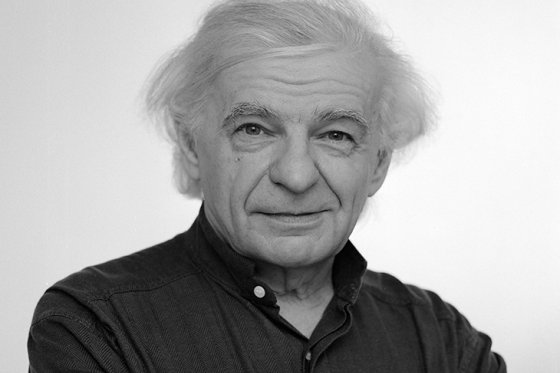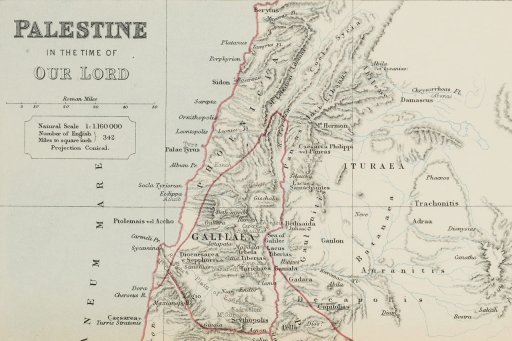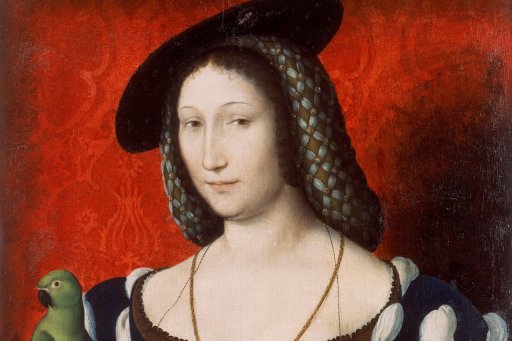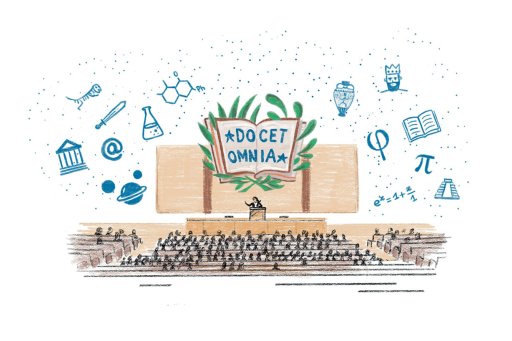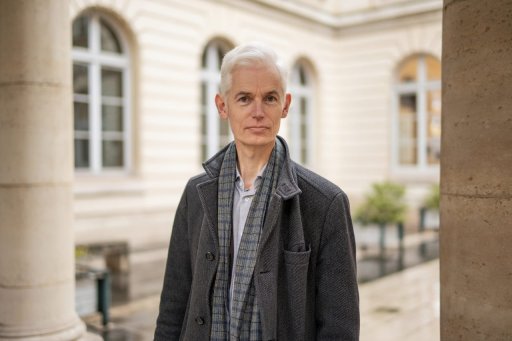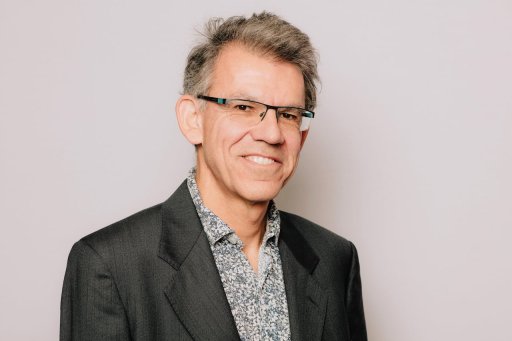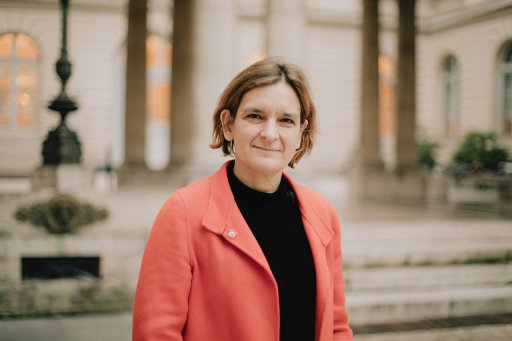Yves Bonnefoy (1923-2016)
Born in Tours on June 24, 1923, Yves Bonnefoy died in Paris on July 1st, 2016. From 1981 to 1993, he held the chair of Études comparées de la fonction poétique at the Collège de France; his lectures were published in the volume Lieux et destins de l'image, by Editions du Seuil, in 1999. For many years, he led and directed the Fondation Hugot colloquia on "La conscience de soi de la poésie", which were the focus of passionate and inspired reflection on the role of literature in the present day, and the very center of activity of our Institut d'Études littéraires. He spanned the 20th century with the freshness of an ever auroral language, spoken with a Leopardian trepidation (one of his permanent points of reference), contemplating a creation blossoming on its own wounds.
Bonnefoy has softened our present and restored the rhythm of harmony to the darkness of the past:
At my home in Urbino between night and day
To Saint-Yves de la Sagesse.
[...]
To the painters of the Rimini school. I wanted to be a historian out of anguish for your glory.
I would like to erase history out of concern for your absolute [1].
Bonnefoy traveled, listened, taught at the Collège de France, wrote about art, poetry, photography and music, translated Shakespeare, Keats, Petrarch, Pascoli and Leopardi, frequented and conversed with the classics, and befriended whatever of the present world was worth preserving; but what best defines him is the humanity embodied in his words and his gaze, a pronunciation - even before it is writing - of the expectation of the other. Bonnefoy's words come to meet us and remain on the threshold, in the simplicity of a "here" that grounds their presence, "determination and courage", as he says of the morally essential form of Morandi and Giacometti [2].
Bonnefoy's arrival at the Collège de France was not an easy one: Georges Blin had prepared for it at length, and his introductory text, which remained in manuscript and was recently rediscovered by Christophe Labaune, bears witness to his hesitations, his commitment, and the difficulties arising from the implicit comparison with Paul Valéry. This text, which should be published, goes straight to the point - from the very first pages - with a concern for "writing" that has the scrupulosity and elegance of virtuosity:
At this point, where the vacancy of a chair is, in its destiny, similar to the influx of a vocation, all I would have to do would be to recall, in due order or by sector, the major contracts of a work and the element of a personality, if in the case of Yves Bonnefoy the presentation did not seem, as if by paradox, as difficult as it was idle. He has said that "presence decides", but what can the presenter do when one of the parts is missing and, to paraphrase a rather decisive Notice itself, there is a risk of arousing that analogy of desolation which, in his eyes, is "the gathering where the celebrable has been missing" [3].
Georges Blin would later publish an excerpt in Commentaire [4], where this part would not appear, replaced nonetheless by a definition as dazzling as it is tormented:
Bonnefoy's fractured logic theorizes the unity of appeal [5].
Indeed, Bonnefoy's poetics are basically coherent, from Traité du pianiste and La Nouvelle Objectivité (1946) to L'Improbable (1980). Let's recall a passage from the 1946 treatise:
All means are good to unmask the object and decontaminate space. The poetry of the future will be the exploitation of these means. It will liberate the mind from logical paralysis, and transform the relationships between man and society that objects imply [6].
This already heralds the battle against the sterile vanity of the "conceptual", which we'll find as an exergue to L'Improbable et autres essais:
I dedicate this book to the improbable, that is, to what is.
To a spirit of vigilance. To negative theologies. To a desired poetry of rain, expectation and wind.
To a great realism, one that aggravates rather than resolves, that designates the obscure, that holds clarity to be an ever-tearing cloud. It is concerned with a high, impracticable clarity [7].
It's the realism of "incarnation" against all conceptual "excarnation", as Bonnefoy emphasized in L'Arrière-pays [8]: it's no longer a question of " thinking the absolute , but of thinking about it from the heart of our existence as we have to live it", in the constant constraint of "a conceptualized speech that doesn't know how to give life" [9].
A poetics that brings together the immediacy of the gaze, the gratuity of the impulse, the call to the other, the risk and ephemerality of the gift:
I give you these verses, not because your name
Can ever flourish, in this poor soil,
But because trying to remember,
These are cut flowers, which makes sense.
[...]
Who wants to have, sometimes, the visit, owes it to himself
To love in a bouquet that only has an hour.
Beauty is only an offering at this price [10].
Bonnefoy's poetry is antignostic, if we define gnosis as "any way of perceiving the world in which we live as insufficient or even bad, and this by remembering another reality, this one good, satisfying, which could have existed or will be able to do so, but then beyond the present times or rather even by transgression and dissipation of time itself, which would only be one of the darkest aspects of human dereliction [11]". Bonnefoy's poetry is a "gift of the gratuitous", the focus of a maturing light:
[...]
O earth, earth,
Presence so willing, so given,
[...]
So much desire for you, perfect earth,
Were not meant to ripen like fruit
In its moment of ecstasy detaches itself
From the branch, from matter, pure flavor [12] ?
This is not, however, a panic world, a nature naturans of which poetry would be the memorial extension, but on the contrary - and ever more precisely in this final achievement - the gathering of the existing in the pure transparency of an "accent du vécu", in its most minute essence:
And it is now before me, around me, in me, the world as it shows itself when it unravels from dream, thing after thing withdrawing into itself, reducing itself to its appearance, giving life back to that other and only evidence which are the crowing of the cock, the barking of a dog on the road, the noise in the distance of a passing car.


